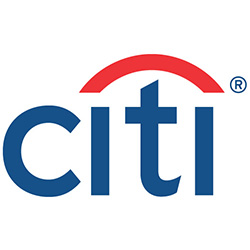Wealth Strategies
Don't Hoard Cash In Inflationary World – Buy High-Quality Bonds – Citigroup

As and when there's more clarity about the path of interest rates and what happens to growth or a possible recession, investors should consider areas such as tech stocks that have been indiscriminately hit by this year's equity selloff. And clients should also put cash to work in areas such as investment grade debt, the US bank argues.
Investors should think about moving cash into high-quality bonds
to protect against inflation and also position for a likely rally
in the tech stock sector that has been indiscriminately pulled
down this year, Citigroup says.
Employment levels in economies are full, there have been rate
rises already and a lot of negative news is already being
discounted. In this environment, bonds look like a smart
investment in certain areas, David Bailin, chief investment
officer at Citi Global Wealth, told journalists in a briefing
yesterday.
“The conversation about bonds is a difficult conversation to
have…and you have to have the data. The data is compelling as we
have ever seen it,” Bailin said. “You can offset some of the
reduction [caused to cash by inflation].”
Citigroup recommends that its wealth/private bank clients only
hold about 2 or 3 per cent of all portfolios in cash, but on
average they hold 20 per cent, an amount that Bailin said is
“crazy.” “We have clients who are highly liquid currently
and we are encouraging them to be fully invested.”
Clients are already responding, and Bailin said the bank’s
discussions about the case for the asset allocation shift are
getting “traction.”
Bailin’s comments come at a time when bonds and equities have
sold off so far this year, caused by central bank monetary
tightening to curb rising inflation – now in double-digit
territory in some countries – as well as the Russia/Ukraine war
and supply chain disruptions stemming from the pandemic. The MSCI
World Index of developed countries’ equities (in dollars) is down
22.4 per cent since the start of January. The S&P US
Investment Grade Corporate Bond Index is down 14.2 per cent this
year.
Since 1963 there have been only six periods when bonds and
equities have fallen simultaneously by the amount seen in 2022,
Bailin said.
The Covid/geopolitical “supply shock” to the world economy is
over and now stores are full of goods. In fact, weakening
consumer demand is likely to cause price discounting at some
point, he said.
Bailin said Citigroup’s stance runs contrary to some of the
existing narrative around markets. He argued that when there
is more clarity on whether a recession is near and that interest
rates have peaked in the current cycle, it will be a signal for
investors to buy stocks.
“Technology shares are becoming interesting again. There’s going
to be this moment when quality technology companies are going to
be really desirable,” he said.
Strong inflows and hires
Separately, Luigi Pigorini, head of Citi Global Wealth and Citi
Private Bank, EMEA, said that Citi’s wealth business in EMEA
has brought in about 40 private bankers since the start of 2022,
taking the total to about 140. Across the whole of Citi Global
Wealth – not just the private banking side – headcount has risen
by 15 to 20 per cent compared with a year ago.
“What has been extraordinary is the amount of investments that
clients are doing with us,” Pigorini told the same media
briefing. “We have had a record six months,” he continued,
arguing that higher central bank interest rates have helped the
banking book.
Large family offices which Citigroup deals with are taking
advantage of heightened market volatility, he said.
“We are also experiencing an enormous amount of growth in terms
of investments we make to attract people, both at the entry level
and professional levels,” he said, while going on to refer to the
hires of private bankers.
As reported previously by this publication, under the
leadership of Citigroup CEO Jane Fraser, the US bank has been
spinning off some of its retail businesses in countries such as
Mexico, Australia and parts of Asia, and focusing more on areas
such as wealth management.